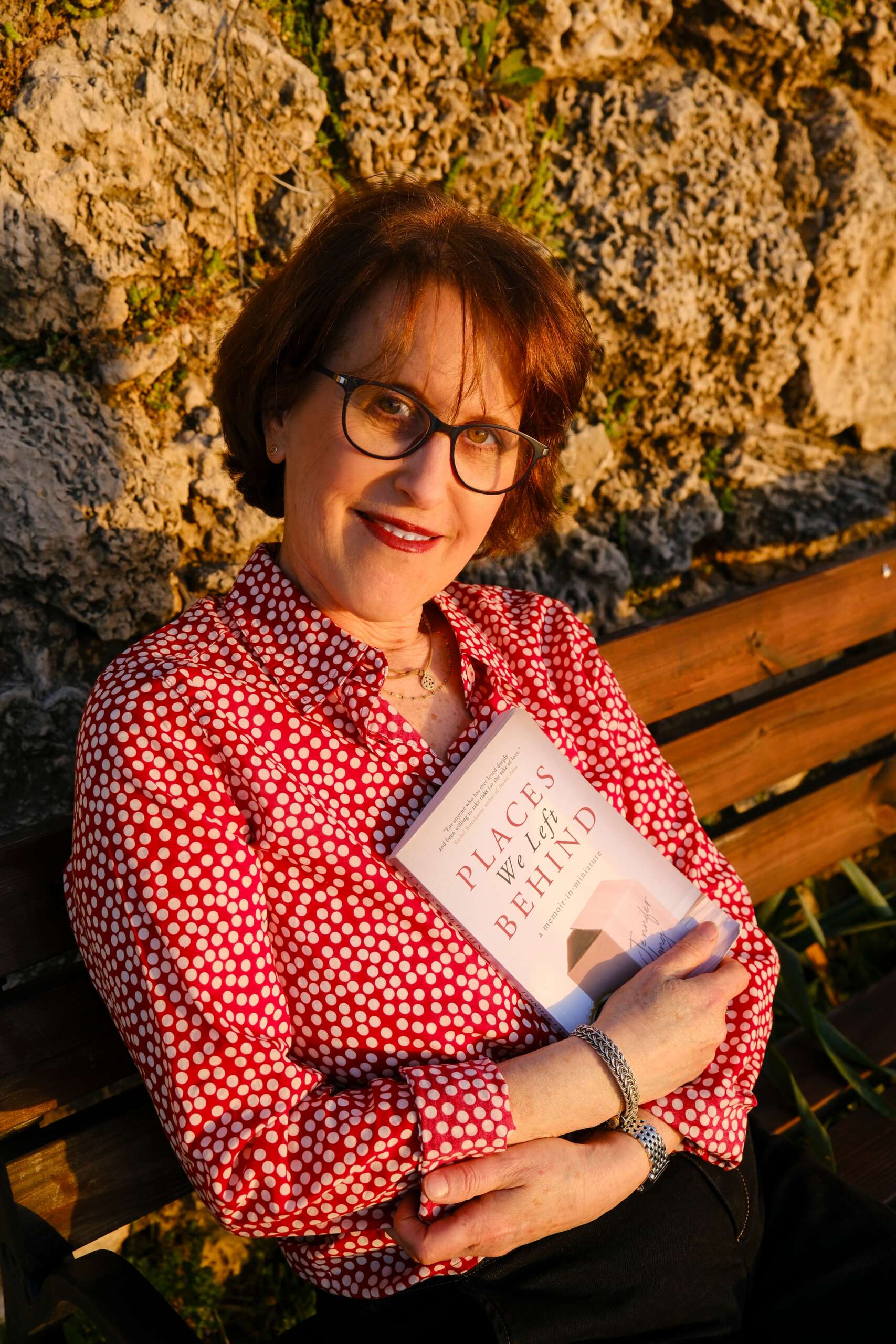We caught up with the brilliant and insightful Jennifer Lang a few weeks ago and have shared our conversation below.
Jennifer, appreciate you joining us today. Do you think your parents have had a meaningful impact on you and your journey?
Growing up in the San Francisco Bay Area during the 70s and 80s, I spent most summers like everybody else: swimming and slurping ice cream at the public pool, roller skating and bike riding with my friends. They were long, lazy days, simple and pure. Until they weren’t. Until my parents deemed us old enough to do something different, to travel abroad, to Israel, to visit our extended family–great aunt and uncle and second cousins.
Only five, I have blurry memories of strolling along the Mediterranean shore with my Great Boba, planting a tree in a gigantic forest, and floating in the Dead Sea. Five years later, we returned with dozens of families on a fundraising mission. Another five years later, I toured the tiny sliver of land from top to bottom with my youth group. Every time one of us was planning a trip, my parents’ peers would question their decision, saying it wasn’t a good time, it wasn’t safe. And each time, my father always answered: “There’s never a good time. And you can’t live your life out of fear, or you won’t live at all.”
We were Reform, assimilated, culturally identified Jews. In our household, we ate pork and cheeseburgers but never went to school on Rosh Hashanah/New Year or Yom Kippur/Day of Atonement. We attended public school and Hebrew school but never uttered the “G” word (unless my mom dropped something in the kitchen and screamed god damnit!).
By the time we reached middle/high school, my parents agreed to host foreign students: Eric from Paris, Laurence from southern France, and Lee from South Africa. My mother and father adored showing these teenagers the Golden Gate Bridge and Sausalito, the steep streets of San Francisco, the hippies of Berkeley.
Throughout my twenties, thirties, and forties, my father’s words rang in my ears alongside my mother’s main mottos: there’s no harm in asking, what have you got to lose? and what’s the worst that could happen? Now in my late fifties, I am who I am and do what I do and live where I live thanks to every one of their maxims and these influences.
Thanks to them, I’ve:
- studied/worked overseas as a single woman
- learned foreign languages
- rooted and uprooted, starting over in different cities/states/countries/continents with my French husband
- launched my own small business, teaching yoga and creative writing, in English in a non-English-speaking country
- settled halfway around the world from my birthplace
- written an unconventional memoir of my marriage and our search for home
While our family dynamic was far from perfect, my parents did several things right. Two years ago, they flew from San Francisco to Jerusalem to attend my oldest child’s wedding despite covid raging, torrid heat, and my father’s Alzheimer’s. Watching them dance, I was overcome by admiration for their zest to live to the fullest, without fear, to the end.
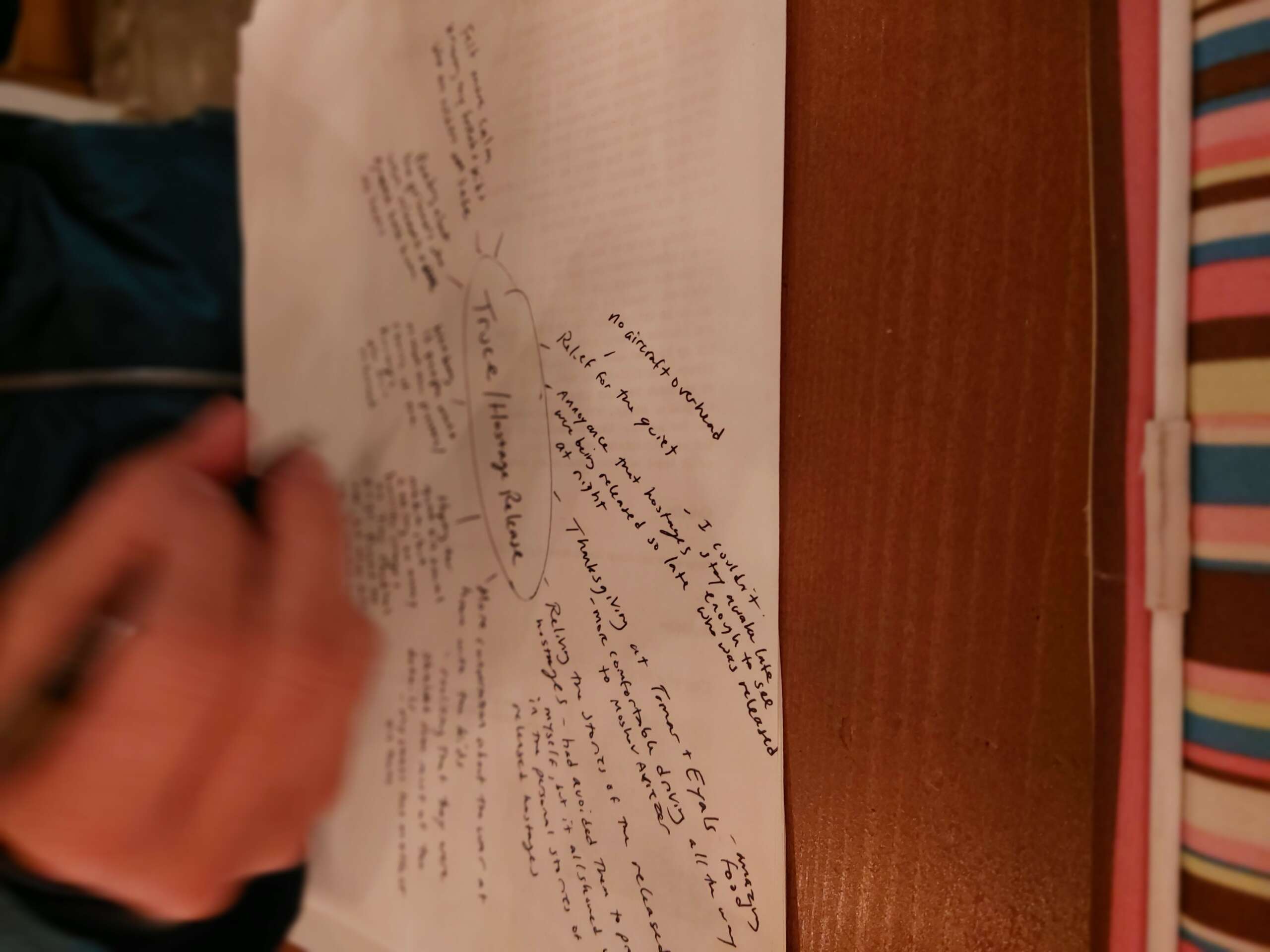
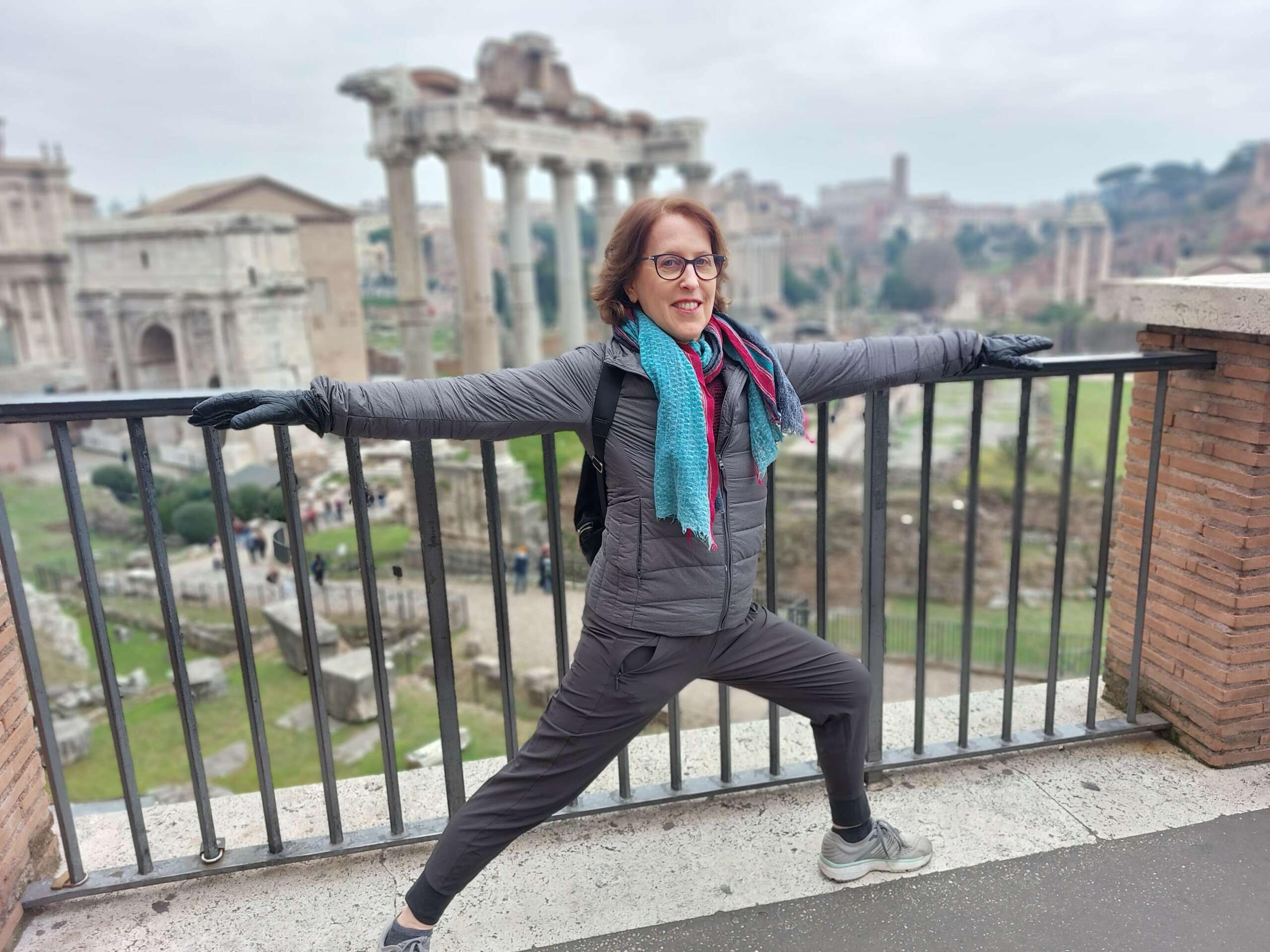
Great, appreciate you sharing that with us. Before we ask you to share more of your insights, can you take a moment to introduce yourself and how you got to where you are today to our readers.
I spent my first 18 years in the San Francisco Bay Area. Being a Californian is a large part of my identity. And yet, I left. College in the Midwest. Junior year in Paris. There, I honed my French fluency (thanks to my mom enrolling me in a pilot program in first grade). Realized the world was bigger than the United States of America. Yearned to speak/look/sound/dream/be mistaken for French.
Fast forward… In 1997, while living in the San Francisco Bay Area raising young children, I was home on maternity leave and bored. A childhood friend had jumped on board as an editor at babycenter, a new dot.com in the world of the wide web. Within weeks, I was working 30 to 40 hours, on weekends and in the evenings. For years, I copyedited, edited, and devised interactive tools. Then, during my third pregnancy, the editor-in-chief commissioned me to keep a journal because she admired my raw, honest voice. She also encouraged me to write for other outlets, which I did, eventually adding Parenting, Parents, Scholastic, Woman’s Day, and other national magazines to my repertoire.
In 2001, after moving to the east coast, I became a certified yoga instructor, dividing my days between teaching yoga and freelance writing. But I craved writing differently, like the personal essays on the back pages of the glossy magazines and enrolled in a creative nonfiction class. Seven years later, I took the best of all the teachings and pitched a memoir writing class to four adult school communities; two hired me. With that, I became a yoga and writing instructor.
No matter what I did, I juggled: work and family, writing and yoga. But really, I spent more time on a mat than at my desk.
In 2011, after relocating to Raanana, Israel, I opened my own studio and began building a student base for both of my passions. But three years later, I reached a turning point, when I wanted less yoga, more writing, and enrolled in a low-residency MFA, flying to a program in Vermont for 11-day intensives and working remotely with mentors during the months in between. Midway through my program, after several people inquired about creative writing classes in English, I launched Israel Writers Studio at my dining room table. My mother’s maxims guided me yet again.
But of everything I’ve birthed and created, I am most proud of my first book: an unconventional memoir with experimental, playful prose and a strong visual component. Places We Left Behind is a love story with a lot of conflict—inner and personal, marital and geopolitical—about home. Born in September of 2023, it has been awarded Finalist in the Foreword Reviews for Autobiography/Memoir, American Book Annual Best Book Awards and IAN Book of the Year Awards for Multicultural Nonfiction, as well as in the Wishing Shelf book awards for Adult Nonfiction. It is all about my fear of and wrestling with living in Israel, in a world that has experienced a total paradigm shift since war erupted on October 7, 2023. The fact that is has gotten any recognition is a miracle.
I am proud of it not because of the subject as much as the form. It embodies everything I’ve learned about taking risks. I pushed boundaries, sought ways to tell my story beyond words, found new avenues to hone my craft. Each one taught me something new, primarily that there is still so much to learn, so much to teach, endless ways to grow.
Check out my website and my books at https://israelwriterstudio.com/
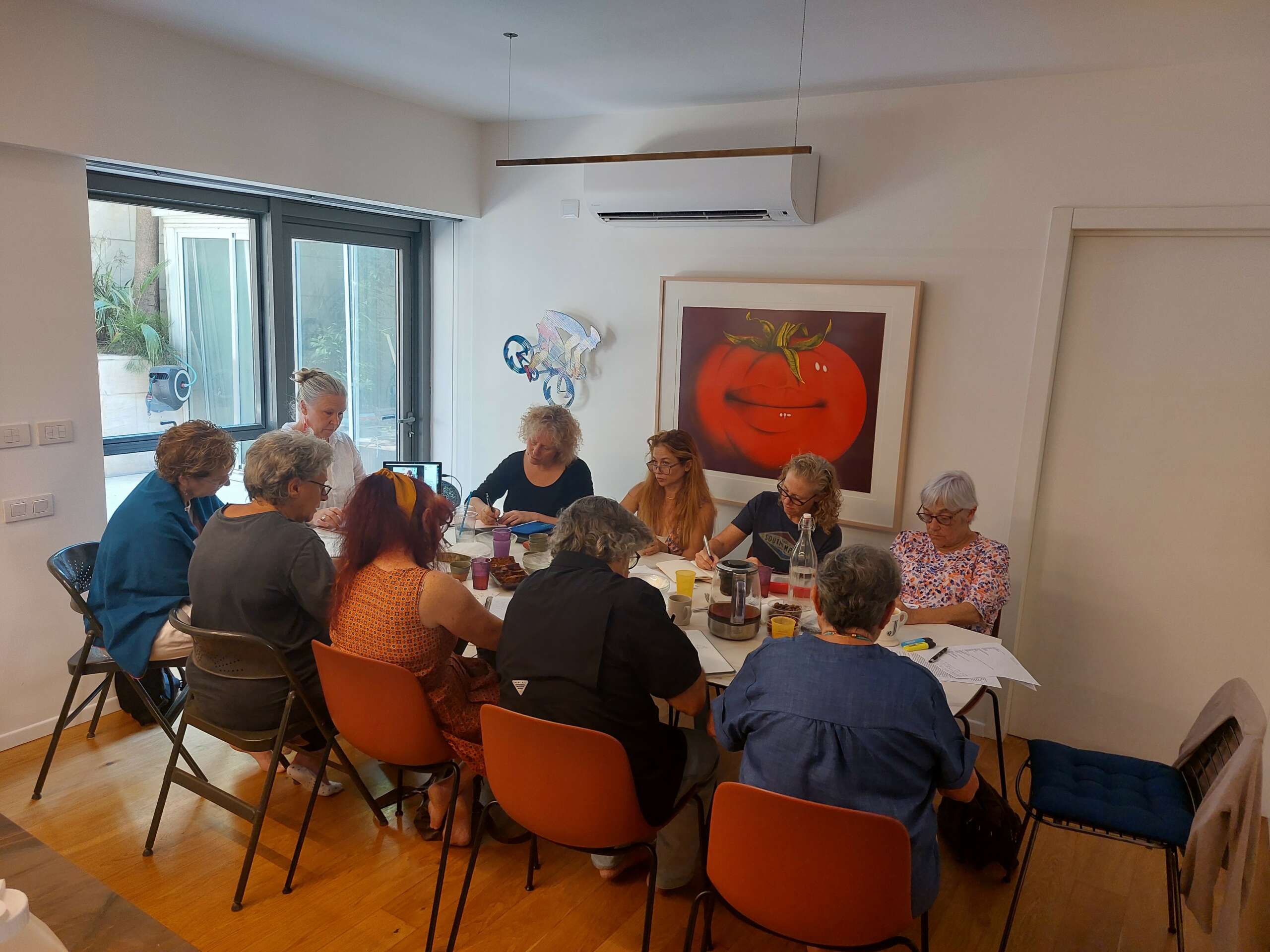
Is there a particular goal or mission driving your creative journey?
Since our latest move/third time living in Israel, I have made my mission to write about living here for a non-Jewish audience, to show that there is more to life than what you read in the news headlines, especially today, and to separate country from religion, Israel from Judaism, since they are not synonymous. When I write, I never assume a reader understands the meaning of keeping the Sabbath, eating kosher, or observing the holidays, for example.
My essay, “Right of Return,” is one of my first attempts to take the boundary-breaking prose in my book Places We Left Behind: a memoir-in-miniature and do it in my shorter work: https://barrenmagazine.com/right-of-return
A structure geek, I often start with the container/structure before the content. In other words, ass backwards from many writers. For years, I’ve been “experimenting” but rarely stepping beyond the obvious: an acrostic essay here, a list essay there.
One of my MFA mentors, Barbara Hurd, encouraged me to be nimbleminded and to play on the page, but I was always too cautious, too self-conscious. Now, I no longer hold back.
Lately, I have tweaked my mission: to write about where I live in some new, other, not-yet-done form.
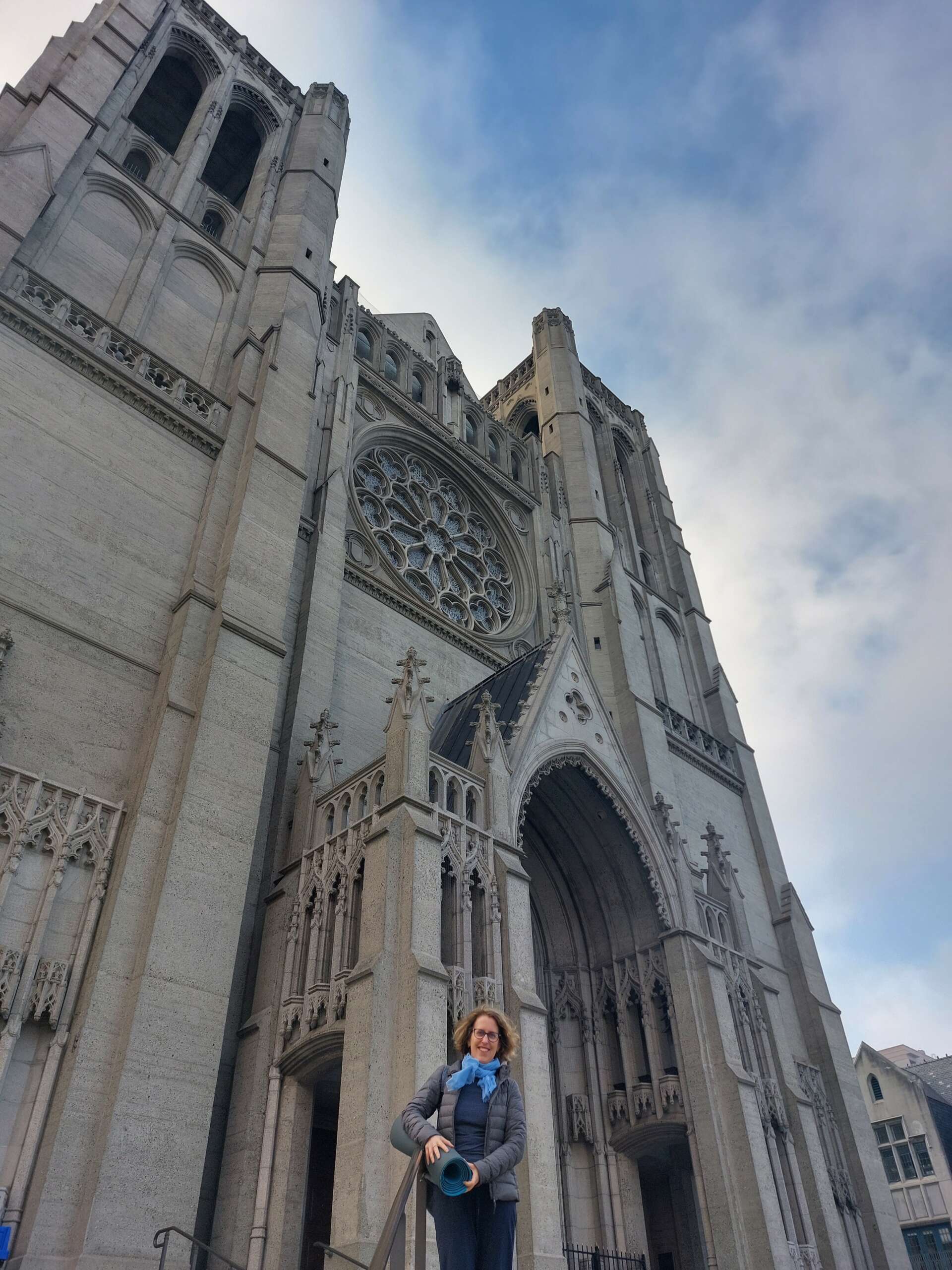
Have you ever had to pivot?
From 1994 to 2011, my husband and I moved six times: Israel to France to California to New York to Israel to New York to Israel. Moving countries and continents forced me to start everything from scratch–from making friends to finding doctors, dentists, bank, library, car mechanic, grocery stores, and jobs.
At 23, I abandoned my dream of pursuing a master’s in public policy to make foreign language mandatory in the American elementary school system and unexpectedly stayed in Israel, where I had no clear career path but understood my native tongue opened doors. I helped an Israeli sociology professor publish academic papers on Jewish-Arab coexistence, copy edited an English-language journal of Jewish History, worked in the English-language public affairs department of Technion University. Back in Paris for my third time, I managed a small team, answering phones, fielding questions about work-and-study-abroad programs at Council on International Educational Exchange to pay the bills, while my husband pursued his MBA. A year later, in the Bay Area, I worked in the marketing department of the San Francisco Jewish Federation, while he completed an internship for his degree. Eventually, we both consulted in the dot.com sector like everyone else in northern California. After changing coasts for his company, I continued writing for websites and magazines but enrolled in a yoga teacher training program to stabilize the ebbs and flows of my freelance career.
Of all the pivots, the most challenging ones happened during our Year of Living Differently in Israel from 2007 to 2008 and our final decision to return to the country where our story started in 2011. Both required me to be a chameleon, to adapt or sink, to swim or surrender. Finally passionate and satisfied with my professional choices as a yoga and writing instructor, I forged ahead in the non-English speaking country. Joined an Anglo networking group. Opened my own yoga studio. Launched classes. Founded Israel Writers Studio. Blasted my services on social media platforms.
Today, I no longer teach yoga but YogaProse: using your practice to access your story, as well as run hybrid writing classes and workshops on a regular basis. Pivoting and reinventing myself was not only draining but also good for the brain. My hope is that all the change and fresh starts will help me stave off my father’s fate of Alzheimer’s.
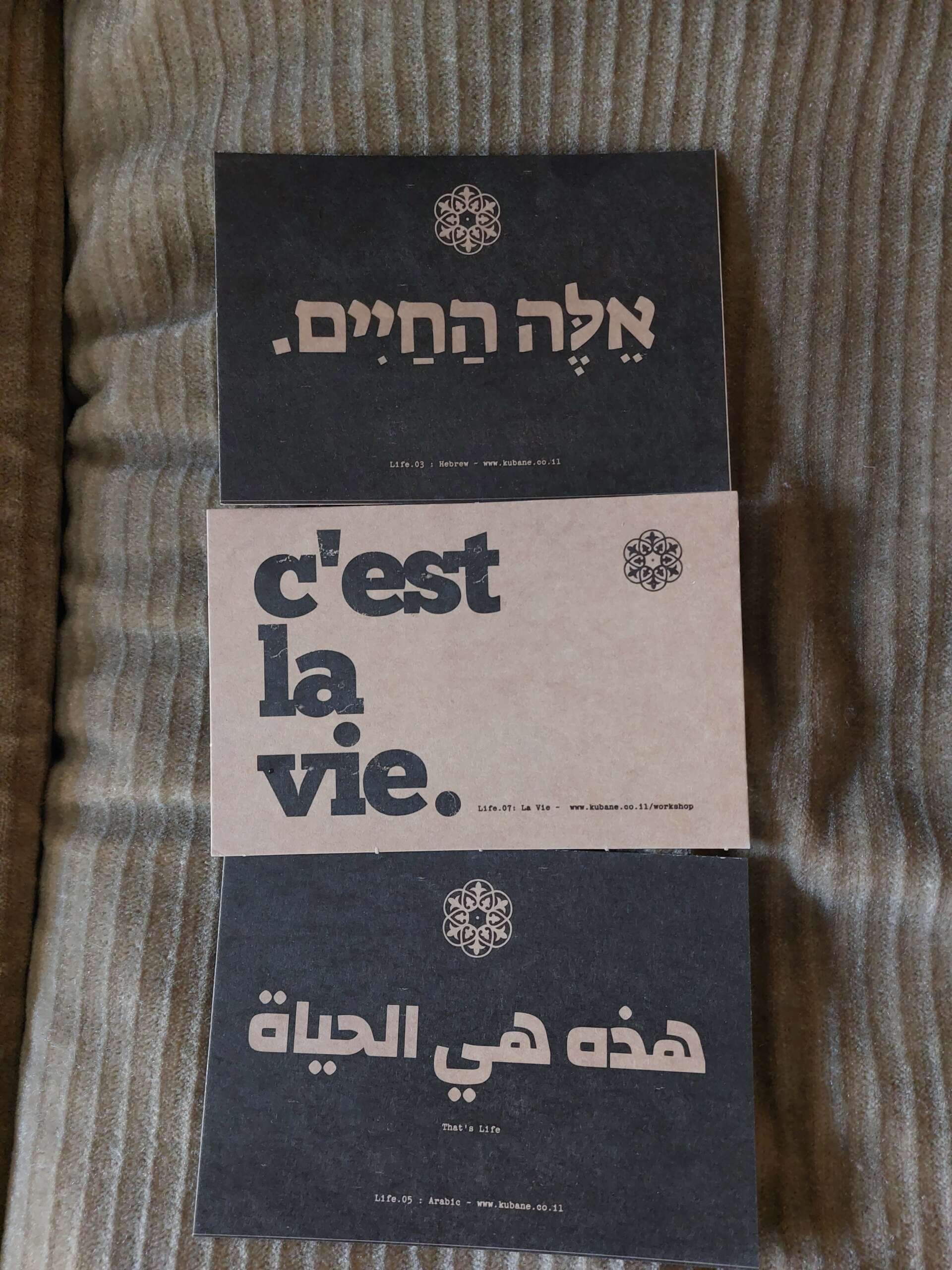
Contact Info:
- Website: https://israelwriterstudio.com/
- Instagram: https://www.instagram.com/jenlangwrites/
- Facebook: https://www.facebook.com/jenlangwrites/
- Youtube: https://www.youtube.com/channel/UCaRPVyAMtnSIFzFdagbL3lw
Image Credits
Photo of me with book by www.instagram.com/karenlynn.art


